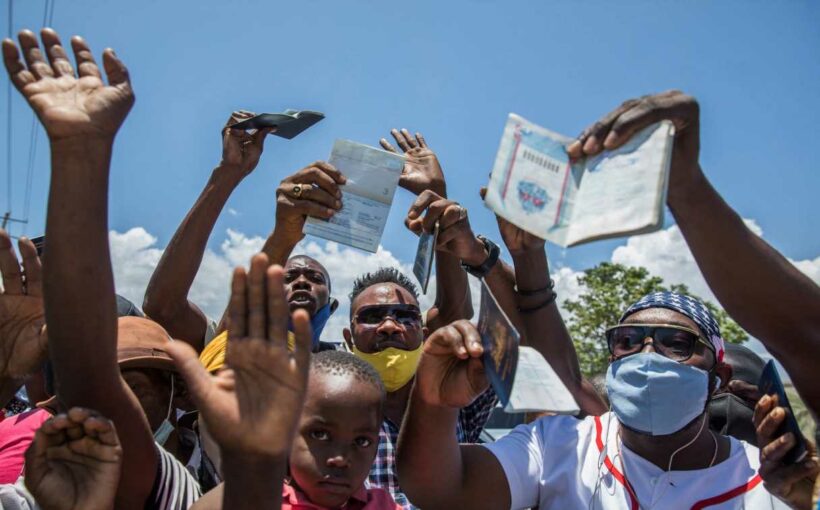- Officials from several U.S. agencies have arrived in Haiti in response to a request for assistance after the assassination of President Jovenel Moise.
- The delegation is pushing for a political accord to "enable the country to hold free and fair elections," according to the White House.
- The State Department confirmed that Haiti's police have also arrested a third U.S. citizen following Moise's assassination.
A delegation of U.S. officials is on the ground in Haiti to assess the political and security situation in the Caribbean nation five days after the assassination of President Jovenel Moise, amid reports that a Florida resident suspected to be one of the masterminds behind the killing has been arrested.
The White House confirmed Monday that a delegation of officials from the National Security Council as well as from the departments of Homeland Security, State and Justice have met with the interim leaders of Haiti and the national police in response to their requests for assistance with security and the investigation into Moise's murder.
The arrival of the delegation from the U.S. follows the arrest of a Florida man of Haitian descent who is reportedly a key suspect in the killing of Moise at his private Port-au-Prince residence Wednesday.
The State Department confirmed Monday that a third U.S. citizen was arrested following the assassination, but declined to provide further information due to privacy considerations. The department pointed instead to Haitian authorities for details on the arrest.
Haitian police said they havearrested Christian Emmanuel Sanon, who entered Haiti on a private plane "with the intention of taking the Haitian presidency." Sanon, who is in his early sixties, was described as having a critical role in the assassination, with Haitian police noting that he was the "first person the attackers called" after the president was shot dead.
The New York Times and The Miami Herald have reported that Sanon is a doctor based in Florida.
The U.S. delegation's arrival also comes after White House officials told NBC News on Friday the U.S. does not have plans to send troops to protect critical infrastructure, amid reports Haitian officials had requested such assistance. Pentagon spokesperson John Kirby said over the weekend that the Defense Department was reviewing the Haitian request for troops, but the U.S. is primarily focused on the investigation.
"I don't know that we're at a point now where we can say definitively that our national security is being put at risk by what's happening there," Kirby told Fox News Sunday. "But, clearly, we value our Haitian partners. We value stability and security in that country."
The U.S. delegation met with Haiti's interim leaders to encourage free and fair elections, National Security Council spokesperson Emily Horne said in a White House press release. U.S. and Haitian officials also reviewed the security of the country's critical infrastructure, Horne said.
"In all their meetings the delegation committed to supporting the Haitian government as it seeks justice in this case and affirmed the United States' support for the people of Haiti in this challenging time," Horne said.
CNBC Politics
Read more of CNBC's politics coverage:
- California Gov. Gavin Newsom is facing a recall — here’s what to know and why he’ll likely win
- Biden and Merkel to discuss Afghanistan, cybersecurity and Nord Stream pipeline this week
- Police arrest 4 on various weapons and drug charges at Denver hotel near Coors Field
On Friday, the State Department confirmed that two U.S. citizens were arrested by Haitian police following the assassination but declined to comment any further.
Haitian police on Friday identified the American suspects as James Solages and Joseph Vincent, both of whom are of Haitian descent. They are among at least 20 suspects detained so far by Haitian police, along with 18 Colombians.
Moise had faced violent protests for months prior to his murder. Opposition leaders accused him of seeking to increase his power even after his term legally ended in February and demanded that he step down.
Opposition leaders and their supporters pointed to Moise's approval of decrees that limited the powers of a court that audits government contracts and created an intelligence agency that reported only to him. They also rejected his plans to hold a constitutional referendum that would strengthen the presidency in the country.
Source: Read Full Article
